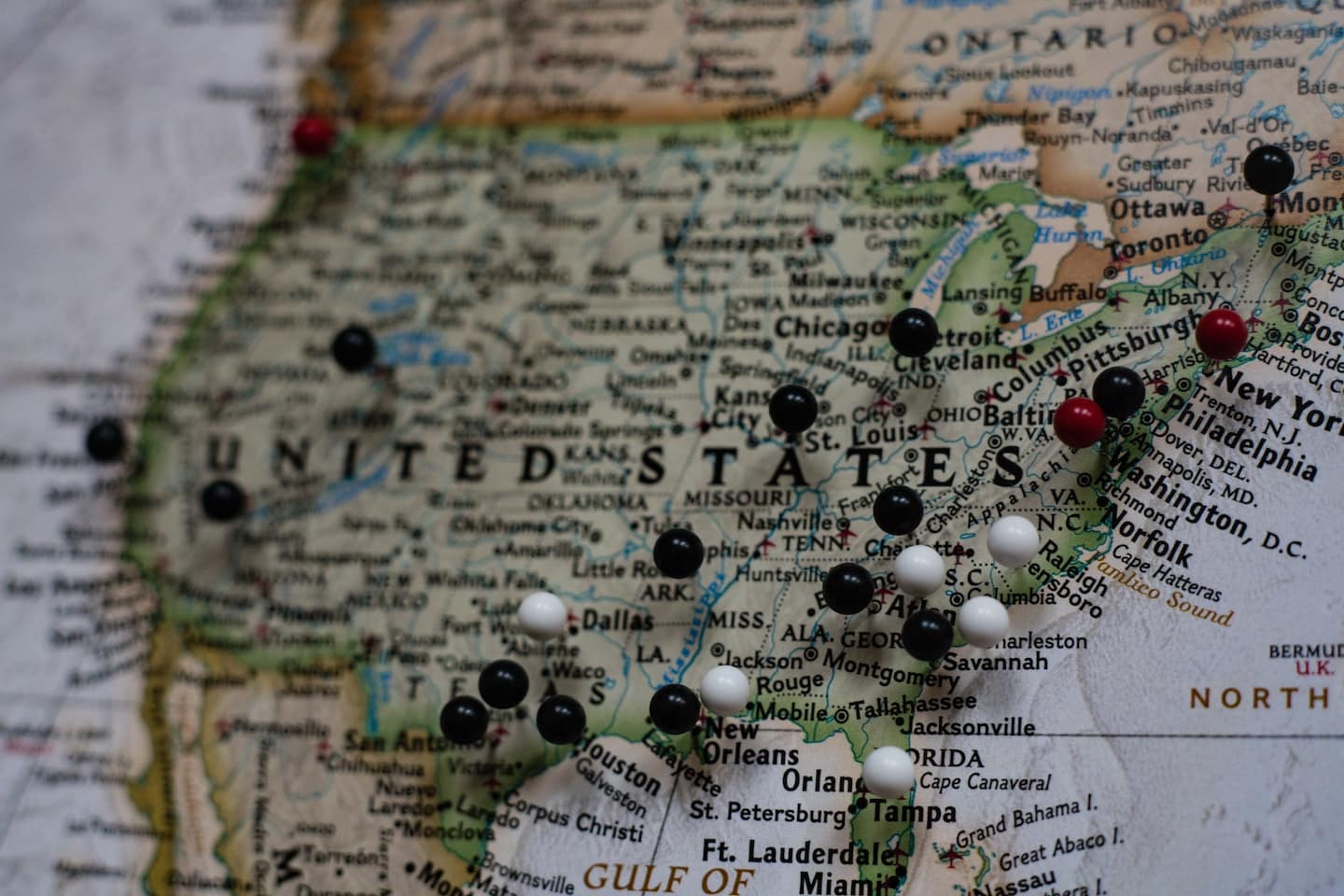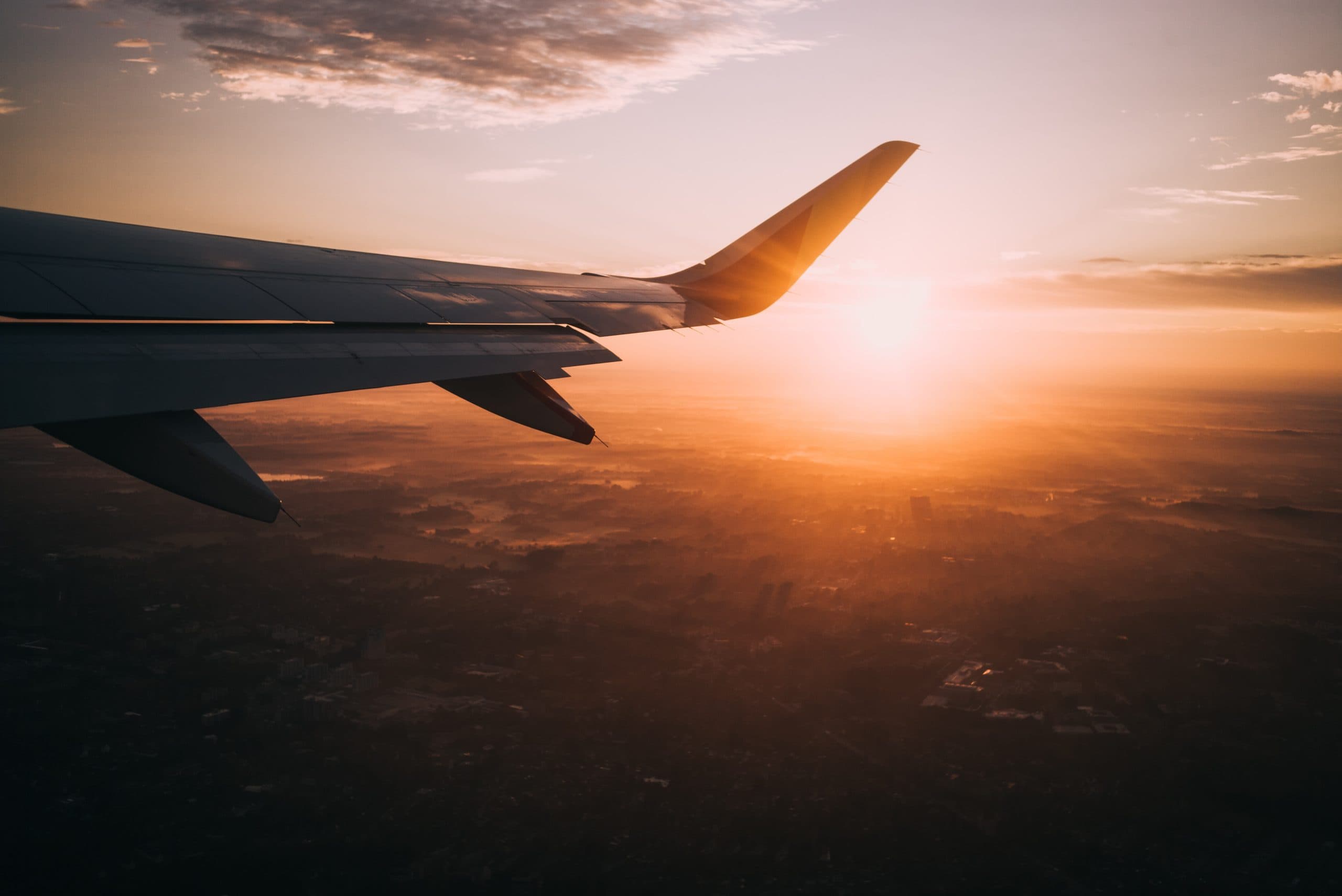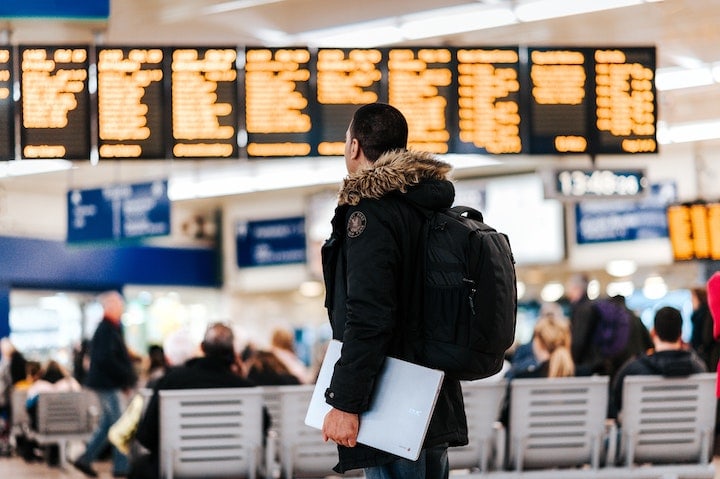It’s an unusual and challenging time for everyone. How do you not feel paralyzed, wondering what’s next and how long this will last?
My heart goes out to anyone directly affected by COVID-19. Especially those still going out there every day, on the front lines. They are fighting this virus for the rest of us. Most importantly, my heart goes out to the medical staff who are working tirelessly to test, treat, and triage patients in an unprecedented time of unknown and chaos. Another shout out to those working for the essential local businesses. They are still out there putting themselves at risk for the sake of others. You know who you are. THANK YOU!

Impact of COVID-19 on vacation planning
My heart also goes out to those of you who are so deeply passionate for traveling and exploring the world. It is a part of your life that gives you energy. It makes you excited. Maybe it’s what makes you get out of bed every day! And it has been taken away.
We know this is temporary, and travel will be back stronger than ever. But travelers are being forced to cancel and postpone vacations at a pace we have never seen before. I know this word “unprecedented” has been used a lot lately. But this is truly unprecedented. I’m not sure there’s another word for it. You (as a traveler) must feel incomplete and helpless right now.
Here are the big questions during this challenging time:
- When and where will we be able to travel again?
- How do you confidently move forward in the post-quarantine vacation planning process?
- How do you protect your post-quarantine vacation investment?

We understand this industry inside and out. We’ve formed strong relationships with travel suppliers worldwide. We have also been paying close attention to global CDC advisories, WHO guidelines, and travel supplier cancellation policies. It’s all in an effort to stay up to date on the latest.
We’d like to offer 5 tips on navigating this unprecedented and unpredictable travel landscape. You’ll learn how to carry on with vacation planning without putting thousands of dollars at risk. Before getting into the tips, we’d like to address the elephant in the room…
When will it be safe to travel again?
One of the biggest questions we’ve been getting is related to timing. For those who had not planned their vacations yet for 2020, they want to know when it will be safe to travel again. There are plenty of people who already had vacations planned for March and April 2020. They had to scramble to cancel or postpone. Then there are those nervously wondering what is going to happen with their summer and fall vacations. How far out they should push their trip to be safe?
Yes, we will travel again. Travel will be back stronger than ever. But, these are difficult questions to answer because of the implicit unknown of this virus. No one has a crystal ball. All we can do is follow the guidelines detailed in this article and weigh these factors against your own risk tolerance.
To help with your decision process, let me shine some light into how some of our existing clients are handling things. Most of our clients who had trips on the books for May through August have not cancelled yet. They’ve decided to wait it out and see how things progress since we still have some time. That being said, May is increasingly more at risk as each day goes by. For June and beyond, there is more hope that we might be able to resume domestic travel or travel to certain low risk international destinations. If only we had a crystal ball…
The other factor is that as of today, many travel suppliers (e.g. airlines and hotels) have not yet updated policies for cancellations or postponement beyond May 31st. We’ve seen some (not all) airlines update their policies in the last couple of weeks. This means if you have something booked for June 1st and beyond, there may not be a cancellation waiver yet. So if we were to cancel or reschedule those trips right now, we would likely be subject to cancellation fees or penalties. In these cases, it’s best to wait and see what happens. As we get closer, if travel is still at risk, most suppliers will update their waiver periods to include these dates. Then we will have a better chance to cancel or postpone without being penalized.
For new bookings, it is difficult to confidently recommend a date when it will be safe to travel. There are a number of factors, including how flexible their schedule is and how high their risk tolerance is. If they are flexible enough to hold off on their trip until August, September, and beyond, that’s probably the best choice. But, this isn’t always the case. They may have limited availability based on their job, kids, or otherwise. In this scenario, we move forward. We just make sure to work with suppliers with flexible cancellation policies given the circumstances.

Lastly, to add some rough data to the mix, most of our new trip inquiries have been for September and beyond. Additionally, many of these travelers are more inclined to consider a domestic vacation than they would have been under normal world health circumstances.
Tip 1 – Pay attention and be strategic
There are so many moving pieces right now and a lot of misleading information being portrayed in the news. Given the unknown of this virus, the best we can do is make educated decisions and put ourselves in the best position for success. Our go-to resources for reliable global guidelines and notices related to health and travel continue to be the CDC and WHO:
Use these resources during the vacation planning process to make decisions on where to go and where to avoid. You might feel more comfortable with domestic travel for the near term. If so, there are likely plenty of amazing remote destinations in your own backyard. If international travel is your preference, just pay attention. There are big differences in the COVID-19 outbreak that some countries have experienced compared to others.
Whether traveling internationally or domestically, pay attention to little details like connecting airports. For example, you might be deciding between two destination countries. One might be at a “Warning Level 3” according to the CDC and the other might not show up on the CDC travel notices website. In this case, you might want to think twice before booking anything to that Level 3 country or flying through a connecting airport in that country.
It is also important to pay attention to your own country’s travel and border policies. For example, for American citizens, on March 19th the US Department of State issued a Global Level 4 Health Advisory. Here is a clip of the advisory from the US Department of State website:
The Department of State advises U.S. citizens to avoid all international travel due to the global impact of COVID-19. In countries where commercial departure options remain available, U.S. citizens who live in the United States should arrange for immediate return to the United States, unless they are prepared to remain abroad for an indefinite period.
In summary, use these resources to make educated decisions on where to go for your vacation. Also consider paying more for direct flights. Or, traveling domestically. These will avoid complications with flight connections, international borders, and will put your mind at ease if there is still concern about traveling internationally.

Tip 2 – Don’t book with an OTA
To be clear, online travel agencies (OTAs) are mass-market companies like Expedia, Priceline, and Orbitz. They offer travelers low priced packages for flights and hotels. These packages can be easily booked online without having to speak with anyone.
The problem with going this route, especially during uncertain times, is the exact reason they claim to be so easy to book a vacation. You are not dealing with a real human! So when it comes time to cancel or reschedule your trip, it can become near impossible to make any progress or get in touch with someone. No human touch means no empathy and no advocate. This reduces your chances to get your money back or rebook to make the most out of an unfortunate situation.
The COVID-19 outbreak is an extreme case. But, you should see the horror stories travelers are experiencing when trying to get help from these companies. Customers are literally being told not to call because they cannot handle the volume. Bookit.com straight up folded. They left travelers completely stranded without any support. This is a direct quote from their website:
In response to the Coronavirus (COVID-19) Crisis now unfolding, BookIt.com has paused normal operations, and the international destinations we service have closed their borders to arrivals.
Due to the nature of this unprecedented pandemic, we have had to close our call centers in Florida, Jamaica, and El Salvador. This, effectively, means that we will be unable to provide agent assistance in cancelling any upcoming trips.
What?!
Here are some other eye opening articles about how OTAs have “handled” the overwhelm. There’s a clip from each article under each link:
COVID-19: Airlines And OTAs Say, ‘Don’t Call Us’ As Travel Agents Come To The Rescue (Forbes)
While airlines, hotel companies, and online travel agencies (OTAs) are telling customers, “Don’t call us, we can’t handle the volume of calls,” and in some cases disconnecting callers after hours on hold, consumers who use traditional travel agents are not only getting advice. They’re getting rescued. They are getting rebooked. They’re getting home. And in some cases, they’re even getting a shoulder to lean on, and a bit of daydreaming, chatting about where they want to go after the COVID-19 Coronavirus crisis recedes.
Expedia Travel Clients Experience Chaos with COVID-19 Disruptions (Travel Market Report)
For travelers who booked their vacations with online travel agency (OTA) Expedia, the experience is compounded with frustration and anger as they struggle to get a hold of someone on the phone, and worry about potential money lost.
On social media, customers complained of excessively long call times and being unable to get through to a representative, leading to travelers being unable to make any changes to their travel plans or start refunds. Some people said they could not get a hold of someone for as much as 24 hours and one person said they called over 30 times. At one point, Expedia said “we are currently experiencing technical difficulties and can’t take your call right now.”
OTA’s COVID-19 Failure Highlights Value of Working With a Travel Advisor (Travel Pulse)
Many folks book on online websites because there is a perception that it is cheaper or faster, which most of the time is no longer the case when you work with a qualified travel consultant that understands you and your requirements.
We all go to our favorite barber or hairstylist, not because they are the cheapest but we know that we trust them and they will take care of us. Why would you do any differently for a multi-thousand dollar experience for you and your family?
14 Booking Sites’ COVID-19 Cancellation Responses (Smarter Travel)
“We always follow the policies of our travel partners. Please check your airline’s cancellation policies for your flight.” […] And for hotels, it simply asks that you contact the hotel directly and to call Priceline if the online cancellation does not work.
We use the term “handled” very loosely when discussing how these companies are handling the overwhelm. In other words, they are not taking any responsibility and have proceeded to encourage their customers to figure it out themselves. And good luck getting in touch with the OTAs directly!
Tip 3 – Book direct with reputable travel suppliers
If you are going to book your vacation on your own, book direct and with reputable suppliers. This means hotels, airlines, tour operators, transfer companies, etc. And pay close attention to what they are offering for cancellation and postponement. Pay particular attention to the following:
- The offer
- What are they offering if you cancel or postpone?
- Are they waiving fees?
- Are they fully refunding?
- Are they offering future credit? If offering credit, what if there is a price change? What if you cannot use the credit?
- The dates
- What booking dates does the policy apply to and how long is their offer valid for? Typically the policy will say something like “For bookings made between X and Y dates”.
- If they are offering a credit, it will likely be valid for some period of time after the original trip was booked or scheduled for. For example, many suppliers are offering credits that are valid up to 12 months after the originally scheduled date of travel.
- The deposit
- Do they require money up front or just a credit card guarantee? Most airlines require full payment upfront, while hotels might offer credit card guarantee or a small deposit.
- It is important to understand how much money you have to front and therefore, how much of an investment you have to protect.
Many reputable travel suppliers are being much more flexible than normal given the circumstances. Even so, it is still important to pay close attention to the details and terms of what they are offering.

Tip 4 – Consider “Cancel For Any Reason” travel insurance
Cancel for any reason (CFAR) travel insurance is the ultimate security blanket for risk averse travelers. This is especially true during uncertain times like this. Yes, it is more expensive than a normal travel insurance policy. Normal policies cover things like illness and injury that prevent you from traveling or end your trip early. But, with CFAR coverage, you can literally cancel for any reason up to 48 hours before your trip.
Your premium generally costs about 10-15% of the total trip cost. Insurance premiums are quoted based on a combination of age, destination, trip length, and trip value. The younger you and your travel companions are, the less expensive your coverage will be.
There are two important caveats for CFAR coverage:
- Typically this insurance must be purchased within 21 days of making your first trip payment.
- The CFAR insurance will cover 75% of trip components that are not eligible for coverage otherwise. For example, there may be some trip components that are covered 100% by other policy guidelines, like trip interruption. Or maybe your airline is offering a waiver that covers your flights 100% or provides a credit. Each component of your trip will be assessed based on your unique situation and you will always receive the highest available reimbursement. So, worst case, your trip will be 75% covered if you cancel and you are not eligible for additional coverage otherwise.
Given the widespread impact of COVID-19, some reputable travel insurance companies are pivoting. Travelex and Allianz Travel have suspended or redesigned their CFAR product. Others, like TravelSafe, continue to offer their CFAR product just as they have in the past.
This coverage is not for everyone or every scenario. But, it should be something you consider during these uncertain times.
Tip 5 – Work with a Travel Advisor
Take into account everything we’ve discussed in this article. When planning your post-quarantine vacation, it is a lot to handle. Especially for someone who does not know the ins and the outs of the travel industry. And, we haven’t even talked about actually designing and planning your trip, aka the fun part!
Travel planning is overwhelming and time consuming during normal circumstances. Add to that the chaos and uncertainty of a global pandemic. It seems like an insurmountable feat! This is where a professional can help.
Travel advisors can help you navigate everything we’ve talked about in this article. We’ll make recommendations in your best interest, based on what would make you feel the most comfortable. We know this industry inside and out, and we have formed strong relationships with travel suppliers worldwide.
We are your advocate and your best interests are always at the forefront. OTAs are leaving customers high and dry in dire times. To get in touch with a hotel or airline directly these days, you’re likely waiting on hold for hours. Or you’re being told to call back when you are within 24 to 72 hours of your trip.
We have contacts and will get in touch with the right people and vouch for you! You can feel at peace knowing that your financial investment in your vacation is protected during these unprecedented times. Most importantly, we will get to know you and your travel companions at a personal level and design an awesome trip for you.

We all go to our favorite barbers and work with financial advisors. It’s not because they are the cheapest. It’s because we know them and we know they will take care of us. When investing so much time and money into a vacation, why do it any differently?
Coronavirus has likely helped you appreciate a few things:
- How much you enjoy spending quality time with your loved ones
- The importance of doing the things that bring you joy with the people you love most
- The life-enhancing value travel adds to our otherwise busy lives
Embrace the extra time we have right now and use it to dream up your next vacation with your loved ones. When the world is ready to travel again, we will be here. When the time is right, let us design the dream vacation you’ve been longing for. You’re going to need it, and you will deserve it!
To learn more about our trip planning services, please complete your JB Traveler Profile. We look forward to the opportunity to get to know you and design the vacation you’ve been dreaming of!


